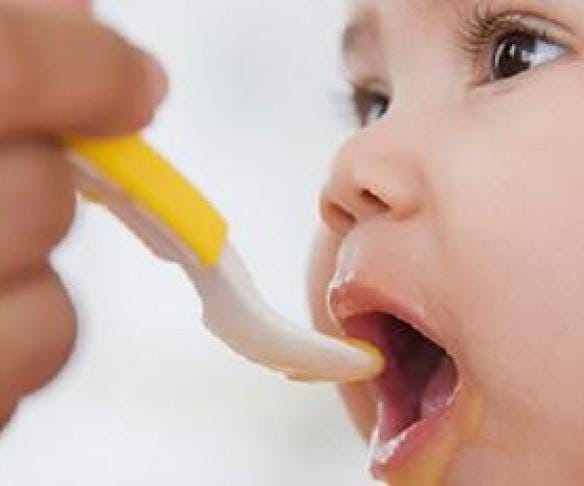Mini Motor Skills
My, how far they’ve come! At about six months, your baby is already sitting in a high chair with good control over their head and body. They may be able to pick up and hold small things, too. They’ll be excited when they see food and may try grabbing the spoon. Go ahead and let them, building their little baby motor skills makes them feel more independent.
While your baby’s in a high chair, they’ll probably also:
- Rake food toward themselves before bringing it to their mouth.
- Use both hands to hold a bottle.
- Drink from a cup with your help.
- Use their upper lip to take food off of the spoon.
- Move food to the back of their mouth.
Babies are excited to learn, making this the perfect time to teach them how to drink from a cup. Babies love to imitate, so hold a cup with both hands to drink from it, and they’ll try copying you, but you’ll have to do the holding and tipping for now.
Now it’s Their Turn
Try giving them an empty cup to play with. One with the same dimensions as a bottle is best. Usually the first time they hold a cup they’ll try to put their lips around the rim. They’re still learning how the cup works, so they won’t be giving up the bottle just yet.
Your Baby’s Paying Attention
Your little one is starting to notice the world! They’re responding to the sights, sounds and feel of things that come their way, including food. Remember to give them time to practice when they’re learning to eat. Here are some ways you can help them learn:
- Sit them in a high chair for feedings once they can sit on their own. Secure them with the safety strap, and never leave them unattended.
- Let them play with the spoon (even if they don’t eat with it yet) to encourage fine motor skill development. Soft or coated spoons with large, easy-to-grip handles are best.
- Touching, smelling and playing with new foods is normal right now.
- Offer foods more than once to show them new flavors and textures. Before they like a new food, they might spit it out a lot. Remember, it may take up to ten tries before they decide.
- Try to have family meals with your baby. More family meals are better for their development.
Over the Moon for Spoons
Your baby’s eating skills are also hitting the next big step—spoon feeding! Moving their lips sounds simple, but spoon-feeding helps them practice their mouth coordination—not an easy thing to get a hang of. You'll also see your little one moving their jaw up and down to eat food. It’s called “mashing,” and it’s their first step in learning how to chew.
Variety is Important
While breastmilk or infant formula is still their main source of nutrition, your baby may be ready for foods with different combinations of grains, fruits, vegetables and meats. A variety will help them accept more new foods in the future.
It’s also a good time to feed your baby pureed meats if you haven’t already, especially for breastfed babies. Meat is a great source of iron and zinc, which your little one is just starting to need. Infant cereals have those minerals too, and are an important part of their diet.
Your baby’s excited to eat! Just remember to feed them developmentally appropriate foods, and watch out for those hunger and fullness cues.





